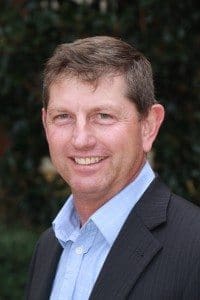 How much control can you have over your assets when you die?
How much control can you have over your assets when you die?
The key point to understand is that an asset will only pass directly to an estate when ownership and control is in the name of the deceased.
The ownership structure in place at the time of death will determine how that asset will pass to the preferred beneficiary. Not all of your assets will automatically pass to your estate.
Your will appoints the executor of your estate who then becomes the manager of your assets. The executor’s job is to identify all your assets, pay your debts and pass assets to your beneficiaries. A comprehensive estate plan will have considered how your assets are held to allow your executor capacity to distribute assets in line with your wishes.
For many people, their estate may be small – not because they have no wealth but because it is held in a way such that they do not own and control the asset outright. The basic combinations follow:
1. Assets you own and control are distributed by your will
(assets you held directly or as tenants in common.)
2. Assets that share ownership will pass to the other owners
(assets held as joint tenants.)
3. Assets you control but don’t own require a separate strategy
(Superannuation, Trusts and Companies)
The unfortunate irony is the assets that you do not directly own or control are most likely to be form the majority of your wealth and comprise the assets that you have the most intimate knowledge of.
Why? Because when you are creating wealth the investment vehicles that offer the most advantages unfortunatley don’t offer the same levels of ownership and control.
Not giving adequate consideration to how your assets in your will are actually held can mean your wealth passes to the incorrect person or your beneficiaries pay more tax than they need to.
Jointly owned assets
The family home is commonly held as ‘joint tenants’. This means if one party dies, ownership automatically passes to the other. It is common for couples to arrange to own other assets such as bank accounts, cars and the like as joint tenants to make life easier for those you leave behind – ownership passes immediately to them and does not go to your estate.
An alternative is to own the assets as ‘tenants in common’. Ownership may reflect your contribution to the asset. When you die, your share of the asset is distributed according to your will. Careful consideration is required when deciding whether an asset should be owned in joint tenancy or as tenants in common because both ownership types have advantages and potential disadvantages.
Superannuation
In most cases, superannuation will become many people’s largest asset. On your death, the trustees of the super fund are responsible for paying out your super to your dependants. Super is not automatically part of your estate. You can choose to direct the trustees to pay your super to specific people being mindful of the different tax consequences that will arise.
Trusts
The assets in a trust are held by the trustees on behalf of the beneficiaries. As a trustee, you may have control of the assets when you are alive. When you die, new trustees must be appointed according to the rules in the trust deed. The trust assets do not form part of your estate and how the new trustees are appointed can have significant impact on future control of these assets.
Companies
The assets in a company are owned by the shareholders. As a director, you may have control of the assets when you are alive. When you die, new directors will be appointed according to the company rules. The company assets do not form part of your estate and separate strategy decisions are required.
This article is highlights some of the complexities that can arise when putting your estate plan in place. Getting advice from a suitably qualified professional will go a long way to giving you control of your assets after you have gone.
Graham Financial is a privately owned boutique financial planning practice which has been in operation since 1985. AFSL 327520. The advice in this article is general in nature; advice specific to your circumstances should be sought before acting on this advice. The author of this article can be contacted on (07) 4613 0514, by email at admin@grahamfin.com.au or online at www.grahamfin.com.au



HAVE YOUR SAY